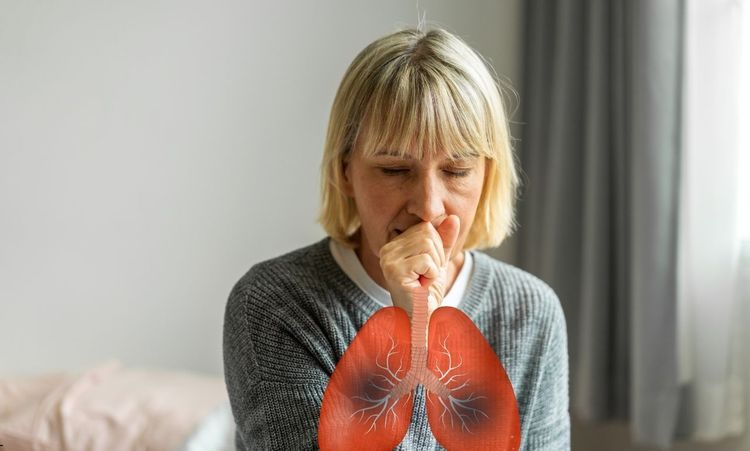Coughing is something most people experience now and then. It usually signals a cold, flu, or even allergies. But when a cough won’t go away—when it lingers for weeks or even months—it could be pointing to something more serious.
Lung cancer often hides behind common symptoms. One of the most overlooked signs is a persistent cough. This type of cough can start subtly and grow more frequent and irritating over time. In some cases, it’s the first symptom people notice before any diagnosis.
In this article, we’ll explore how to tell if your cough could be related to lung cancer. We’ll also walk through how doctors diagnose it, what else might cause a similar cough, and what you can do to manage it.
How to Identify a Lung Cancer Cough
A lung cancer cough doesn’t always scream for attention. In fact, it may start like any regular cough—dry, mild, and easy to ignore. Over time, though, the nature of the cough can shift.
Here's what to look out for:
A cough tied to lung cancer often sticks around longer than eight weeks. It may start to feel deeper or more aggressive than usual. Some people report a change in the sound or rhythm of their normal “smoker’s cough.” You might notice it happens more at night, or when you lie flat.
The biggest red flag? Blood in your mucus. Even a small amount of rust-colored or red-tinted phlegm should be taken seriously. This could mean that tumors are irritating or damaging nearby blood vessels. While not every case includes this symptom, it’s enough to warrant immediate medical attention.
A lung cancer cough may also come with tightness in the chest, hoarseness, or shortness of breath. These signs indicate something more than a seasonal virus or simple throat irritation.
How Do I Know If It's Lung Cancer?
A lingering cough might not always raise alarms, especially during flu season. So how do you know when to worry?
Doctors look at several factors. First, they assess your risk. If you’ve ever smoked, been around secondhand smoke, or worked in an environment with harmful chemicals, your risk goes up. Age also plays a role—most lung cancer cases occur in people over 50.
Symptoms alone aren’t enough for a diagnosis, but they guide the investigation. If your cough comes with chest pain, unintentional weight loss, fatigue, or shortness of breath, you’ll likely be sent for imaging.
A chest X-ray is often the first step. It can reveal masses or fluid buildup. Next, a CT scan gives a more detailed look inside your lungs. If something concerning shows up, a biopsy may be performed to test for cancer cells.
Doctors may also examine sputum samples, use PET/CT scans to check for spread, or perform bronchoscopies to get closer views of airways. It’s a layered process that combines imaging, lab tests, and clinical experience.
Other Causes of a Cough
Let’s be clear—most coughs are not caused by lung cancer.
Many other conditions can make you cough frequently. Chronic obstructive pulmonary disease (COPD) is one of the most common, especially among smokers. It inflames the airways and makes breathing harder over time.
Asthma, bronchitis, and pulmonary fibrosis can also produce a dry or wet cough. If you’ve recently had a respiratory infection, you might notice a post-infection cough that lasts for weeks, even after other symptoms fade.
Certain blood pressure medications, particularly ACE inhibitors, are known to cause a chronic dry cough as a side effect. Gastroesophageal reflux disease (GERD) is another non-lung-related condition that causes persistent throat irritation and coughing.
In recent years, COVID-19 has added another layer to the list of potential causes. People with long COVID may continue to cough weeks or months after infection.
This variety of causes makes it crucial to get a proper diagnosis. You don’t want to guess—or wait—when your health is on the line.
Other Symptoms of Lung Cancer
A cough might be the first sign, but it rarely comes alone.
Lung cancer often shows itself through a combination of symptoms. Some may be subtle, while others are harder to ignore.
You may feel tired all the time, even after a full night’s sleep. Persistent fatigue isn’t just a side effect of a busy schedule—it can be your body’s response to cancer.
If tumors are pressing on nerves or growing near bones, you might feel chest pain, shoulder pain, or discomfort in your upper back. Some people experience swelling in the face or neck, especially if blood flow from the chest is restricted.
In some cases, your fingers may change shape. Known as clubbing, this condition causes fingertips to enlarge and nails to curve downward. While it can occur in other diseases, it’s a notable sign in lung cancer.
Hoarseness, repeated chest infections, and unexplained weight loss are also on the list. These signs might not scream "cancer," but together, they tell a story doctors need to hear.
Seeking Help for Your Cough
Here’s the truth: waiting too long to address a cough can cost valuable time. That’s especially true when it’s linked to a serious condition like lung cancer.
If your cough has lasted more than three weeks, it's time to speak with a healthcare provider. Be honest during your visit. Share all your symptoms, even the ones that seem unrelated.
Let them know about any recent weight loss, fatigue, shortness of breath, or blood in your phlegm. Mention any family history of cancer or long-term exposure to smoke, pollution, or chemicals.
If you’re over 50 and have a history of smoking, ask about low-dose CT scans. These are often recommended annually for high-risk individuals. Early screening saves lives by catching cancer before symptoms become severe.
The sooner you’re diagnosed, the better the outcome. Don’t downplay your symptoms or delay the visit.
Managing Your Cough
A cough linked to lung cancer can be frustrating. It interrupts sleep, strains your voice, and affects your energy levels. But there are ways to manage it and find some relief.
Medical Approaches
Doctors often use a combination of treatments to control lung cancer coughs. If tumors are causing the issue, radiation therapy or chemotherapy may shrink them and relieve pressure on the lungs.
For direct relief, cough suppressants—including opioid-based options—can be prescribed. These are used carefully to minimize side effects and avoid dependency.
Some patients benefit from steroids that reduce inflammation in the lungs. If your cough is related to fluid buildup, pleural drainage may help.
Endobronchial brachytherapy—a type of internal radiation—is sometimes used to target tumors inside the airways. It can reduce irritation and coughing episodes.
Practical Self-Care
Aside from medication, there are small lifestyle changes that can make a difference.
Keeping your living space free of smoke, dust, and strong chemicals helps reduce airway irritation. Using a humidifier keeps airways moist, especially during dry seasons. Staying hydrated helps thin out mucus and makes it easier to cough up.
Warming drinks like lemon tea with honey can soothe your throat temporarily. While they don’t address the root cause, they offer some comfort between treatments.
Pursed-lip breathing is another technique worth trying. Inhale through your nose, then slowly exhale through pursed lips as if you’re blowing out a candle. This method helps improve airflow and calms your breathing.
Conclusion
A cough can be a passing nuisance—or a warning sign that shouldn't be ignored.
When a cough lingers for weeks, changes in tone, or includes blood, you owe it to yourself to investigate. Lung cancer is often detected late because its early symptoms seem ordinary. Recognizing the signs early can lead to better outcomes and more treatment options.
Don’t hesitate to speak with your doctor. Ask questions. Request tests if needed. Whether your cough is from an infection, chronic condition, or something more serious, knowing the cause is the first step toward relief and peace of mind.




